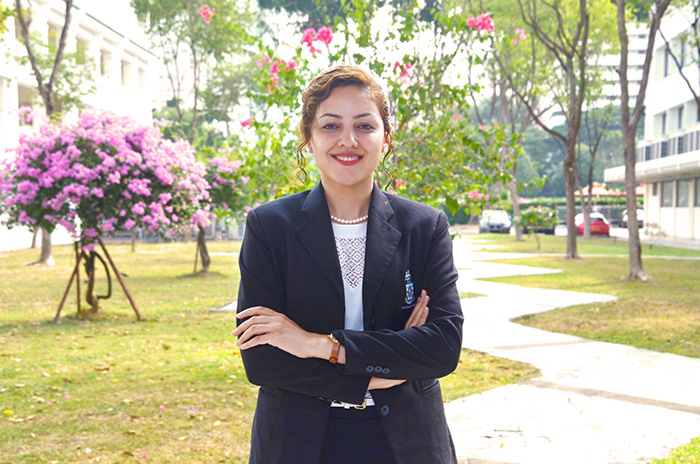Media Releases
Tourism suffocates from haze
Media Releases

Find out how tourist experiences are negatively affected by the haze situation.
Imagine stepping out of the airport and being greeted with a view that’s blurry and grey. No, that isn’t your vision failing you, it’s simply the haze that has engulfed the city.
Singapore’s air quality deteriorated to “unhealthy” levels on 14 September for the first time in three years.
This spells bad news for citizens struggling to go about their everyday lives, as well as for tourists looking to visit the nation for major attractions such as the Formula 1 Grand Prix, our rich culture and the various festivals held here.
Naturally, concerns are raised over the safety of public health, particularly for those with special needs or asthmatic conditions. These anxieties can infect travellers before, during and after visiting the country.
 (Pictured: Dr Zohre Mohammadi)
(Pictured: Dr Zohre Mohammadi)
Dr Zohre Mohammadi, a Research Fellow in the Tropical Futures Institute (TFI) at James Cook University in Singapore, provided some insights into potential effects of weather and climate events on tourist experiences, “The consequences of the haze may affect tourists’ plans to visit, shape what they can and should do when in the country, and leave lasting (and not so positive) impressions of the destination when they return home. If the haze receives widespread international publicity this may diminish Singapore’s appeal for those planning to visit the country.”
She continued, “For those visiting during the haze, they may have to modify their plans, most notably by reducing their physical activity and seeking indoor entertainment rather than suffering due to exposure to the atmosphere.”
Professor Abhishek Bhati, Campus Dean & Head of Teaching, Learning & Student Engagement, is also a tourism researcher. He commented further, “Indeed, in studies of bad smog in China, and tourists’ reactions to that kind of extreme event, there were lasting negative effects on the desire to visit the affected cities again.”
Dr Mohammadi points out that key industry players affected by the potential reduction in the number of tourists visiting events such as the F1 Grand Prix should emphasise the temporary nature of the problem to avoid long-term reputational damage to the destination.
She elaborates, “Through the haze, the tourism sector must still try and see clearly and use these kinds of promotion and adaptive strategies to reduce the risk to tourists and to the economy. Further, the voices of tourism and tourists must add to the call for government action and international cooperation in reducing human induced extreme events.”
Professor Dean Jerry, Dean of Research for the Singapore campus of James Cook University, and Director of TFI, underscored the importance of tourism research in terms of economic and social impact, “The impacts of tourism can be vast and complex — from employment opportunities to increased intercultural communication and understanding. Therefore, research into this subject can help us harness the many benefits of tourism while avoiding the disadvantages.”
Find out more about the Tropical Futures Institute here.
Find further information on our areas of research and research strength at James Cook University in Singapore here.
Contacts
Research: Professor Dean Jerry [email protected]
Media: Pinky Sibal [email protected]